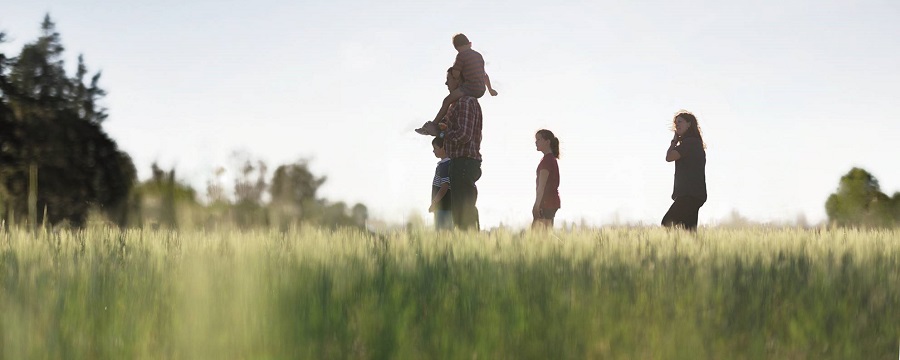Philanthropy. Charting your own personal journey.
18 Feb 2021
The past decade has seen a significant rise in philanthropy, with more donors willing to put money and effort into making the most of their giving. Many start by considering how their wealth can make a difference in improving the lives of others – beyond their immediate family and heirs. John Morrow, Head of Philanthropy at JBWere New Zealand, looks at the role philanthropy plays and offers some tips on how to make your own philanthropic journey a successful one.
At its best, philanthropy provides funds and other private resources to those working to make a difference in the world – it seeks positive social and environmental change without any expectation of financial return. It is distinct from charity which aims to eliminate suffering caused by social-environmental problems – typically a short-term, reactive response to an immediate problem or issue.
Philanthropy, in contrast, goes deeper and intends to eliminate underlying social-environmental problems. It is more deliberate than a simple donation. It has an intentional focus on the impact of the funding, and typically takes a more informed, planned and targeted approach, in addition to longer term funding.
The reasons for giving
The reasons to give will vary, but the community need for philanthropy remains. They can include intent to solve pressing social problems, to act on a religious or philosophical belief to help others, to reinforce intergenerational family values, to achieve recognition, or merely to give greater personal meaning. Whatever the reason, the case to give has never been stronger.
We live in a world that for all its goodness, is increasingly unequal, unstable and unsustainable. Governments, including here in New Zealand with its moderately active welfare state, are struggling to meet traditional responsibilities to their citizens, as well as to those most in need abroad.
Non-governmental non-profit organisations join people together to advance the public good and often have greater capacity and flexibility to innovate in the delivery of services than government departments. These organisations provide vital services and help support our society in those areas that are not well served by individuals alone, government or the marketplace.
The pandemic has challenged the non-profit sector in 2020. As the impact of COVID-19 continues to hit, these organisations and the people they support need help. Locally, many New Zealand charities and other non-profits faced a funding shortfall.
Each year, individuals, trusts and charities give around $3.8 billion to New Zealand causes. In our final outlook last year we estimated total giving for 2020 remained flat relative to the 2019 giving level (against a normal growth rate of 4.4% p.a.) and we estimate giving to drop by 12% to $3.34 billion in 2021.*
Even in less turbulent times, philanthropic support is critical to resourcing a wide range of organisations that provide vital services in tying together the fabric of our society.
Calling for more family philanthropy to fund innovation
Internationally, family foundations often focus on systems change innovations as their primary role in the philanthropic spectrum. This is also the case amongst some of our leading family foundations here; such as The Tindall Foundation, J R McKenzie Trust, Todd Foundation, Wayne Francis Trust, NEXT Foundation, and Wilberforce Foundation. These are some of the most capable organisations and remain likely to still be the lead funders on innovations – particularly systems-change innovations.
A key role and place for family foundations in the New Zealand philanthropic community, as perhaps most exemplified by The Tindall Foundation, is to actively support innovation in all its forms, and particularly in ways that others are not currently.
Philanthropy can be personal
Philanthropy can be deeply personal and circumstantial – the path that is right for each philanthropist is one they conceive and design to their own specific circumstances, ambitions, and values.
But love, passion and lofty goals will not alone warrant success. Without the capacity to move beyond passion to effective planning and execution, the philanthropist would be typically left with well-meaning efforts and confuse good intentions with real effects. Traps for the unwary grantor include: ‘fuzzy headiness’, flying solo, under estimating and under investing in the cause, neglect of non-profit organisational overhead, and accepting ‘satisfactory’ underperformance.^
Just as in investing, in philanthropy you need a solid strategy to understand what works, what fails, and why. Whilst there are no simple steps, elaborate frameworks or trusted tools that a philanthropist can always rely on, Thomas Tierney and Joel Fleishman suggest that by asking the right questions – at the right time and in the right way – you will far more likely give wisely and achieve the change you want to bring in the world.
These leaders in philanthropy suggest that in moving from charity to philanthropy you should engage in a process of rigorous inquiry around six separate but related questions:
- What are my values and beliefs?
- What is ‘success’ and how can it be achieved?
- What am I accountable for?
- What will it take to get the job done?
- How do I work with grantees?
- Am I getting better?
Thinking about these questions will help you chart the personal direction of your philanthropic journey and give it focus. It will also, we believe, help to change the odds of success in your favour through strategies that are based on evidence, rather than mere hope.
Philanthropy is a powerful way to figure out what you, and possibly your wider family, want your wealth to stand for over the long term.
Helping you in next steps
BNZ, in conjunction with JBWere, can help you on your philanthropic journey and advise on how the financial assets you bring to it can be integrated into a broader investment strategy. Additionally, Philanthropy New Zealand offer membership to connect and learn from givers, as well as further information about philanthropy in New Zealand.
Any views expressed in this article are the personal views of John Morrow and do not necessarily represent the views of BNZ, or its related entities.
The information in this article is provided for general purposes only, and is a summary based on selective information which may not be complete for your purpose.
* John McLeod, JBWere New Zealand Support Report 2020, developed in collaboration with Philanthropy New Zealand https://www.jbwere.co.nz/latest-insights/philanthropy/the-new-zealand-support-report-february-2020/ John McLeod, JBWere New Zealand Outlook for Giving 2020-21
^ T. Tierney & J. Fleishman, Give Smart: Philanthropy that Gets Results, Public Affairs (2012)


